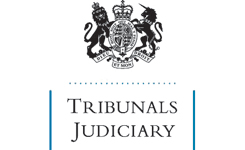|
Notes:
|
Residence condition - habitual residence - length of period of residence required
Tribunal jurisdiction - habitual residence established from date after decision under appeal - whether circumstances obtaining at date of decision
Note: the effect of this decision in relation to advance claims has been reversed with effect from 23.05.07 by the Social Security, Housing Benefit and Council Tax Benefit (Miscellaneous Amendments)Regulations 2007 SI 2007/1331
Each of the three claimants had come to the United Kingdom (UK) with a view to settling permanently. They all claimed income support within a short period after arrival. The Secretary of State disallowed their claims on the ground that they were not habitually resident in the UK at the date of the decision. The claimants appealed. In CIS/3280/2003 a tribunal allowed the claimant’s appeal. In CIS/1124/2004 and CIS/1840/2004 the tribunals dismissed the appeals. The Secretary of State appealed in CIS/3280/2003 and the claimants appealed in the other two cases.
Held by the Commissioner, allowing all three appeals, that:
1. in the light of Nessa v Chief Adjudication Officer [1999] 1 WLR 1937 (also reported as R(IS) 2/00) and R(IS) 6/96, a likelihood of remaining habitually resident is a requirement for the establishment of habitual residence in addition to a completed period of residence, but the strength of the likelihood of remaining is itself relevant when considering the length of the required period of residence and the strength of that likelihood may be demonstrated by, among other considerations, the reasons for choosing to come to the UK rather than to stay in, or go to, any other country (paragraph 15);
2. where a claimant is likely to remain in the UK permanently or for a substantial period of time, the conventional period that must have elapsed between his arrival and his establishing habitual residence is between one month and three months, but those are not rigid limits and a shorter or longer period may be required in some cases (paragraph 16);
3. where a claimant shows an intention to take up prolonged residence in the UK and the only reason for not awarding income support is that the claimant has not yet resided in the UK for a long enough period, the Secretary of State is entitled to make an advance award from the date on which habitual residence is likely to be established and, if he does not do so, a tribunal may make an award from that date (paragraph 25);
4. in CIS/3280/2003, the tribunal’s decision was erroneous in point of law because it was not clear that it had regarded a present intention to remain resident and a past period of residence as being two separate requirements, but a decision could be substituted and, on the facts, a period of residence of one month had been sufficient to establish habitual residence (paragraphs 29 and 30);
5. in CIS/1124/2004, the tribunal had erred because it had regarded three months’ residence as the minimum period sufficient to establish habitual residence, but a decision could be substituted and, on the facts, habitual residence had been established by the date of claim (paragraphs 31 and 32);
6. in CIS/1840/2004, the tribunal had erred in law because it had not considered whether the Secretary of State could have made an advance award, but a decision could be substituted and, on the facts, a period of residence of two months had been sufficient to establish habitual residence (paragraph 34).
The Secretary of State appealed to the Court of Appeal in case CIS/1840/2004. He submitted that an advance award could not have been made by the Secretary of State because (relying on R(DLA) 4/05) to do so would have entailed the type of prediction or speculation forbidden by section 8(2)(b) of the Social Security Act 1998 (which precludes entitlement to benefit on the basis of circumstances not obtaining at the time of the decision), having regard to the retrospective nature of the requirement that there have been an appreciable period of actual residence before habitual residence is established.
Held by the Court, dismissing the appeal, that:
1. the provisions for making an advance award under regulation 13 of the Social Security (Claims and Payments) Regulations 1987 may apply to cases in which a claimant has a settled intention to reside in UK and where the only issue is as to the length of period of actual residence necessary to establish habitual residence (paragraphs 27, 39, 44);
2. regulation 13 does not require the certain prediction that the conditions of entitlement will be fulfilled at a future date, but rather a judgment as to the likely continuance of circumstances obtaining at the time of the Secretary of State’s decision that will give rise to entitlement to benefit at the projected date if they do continue (CIS/459/1994, R(DLA) 3/01 and R(DLA) 4/05 approved) (paragraphs 31 to 34, 41, 44).
|
